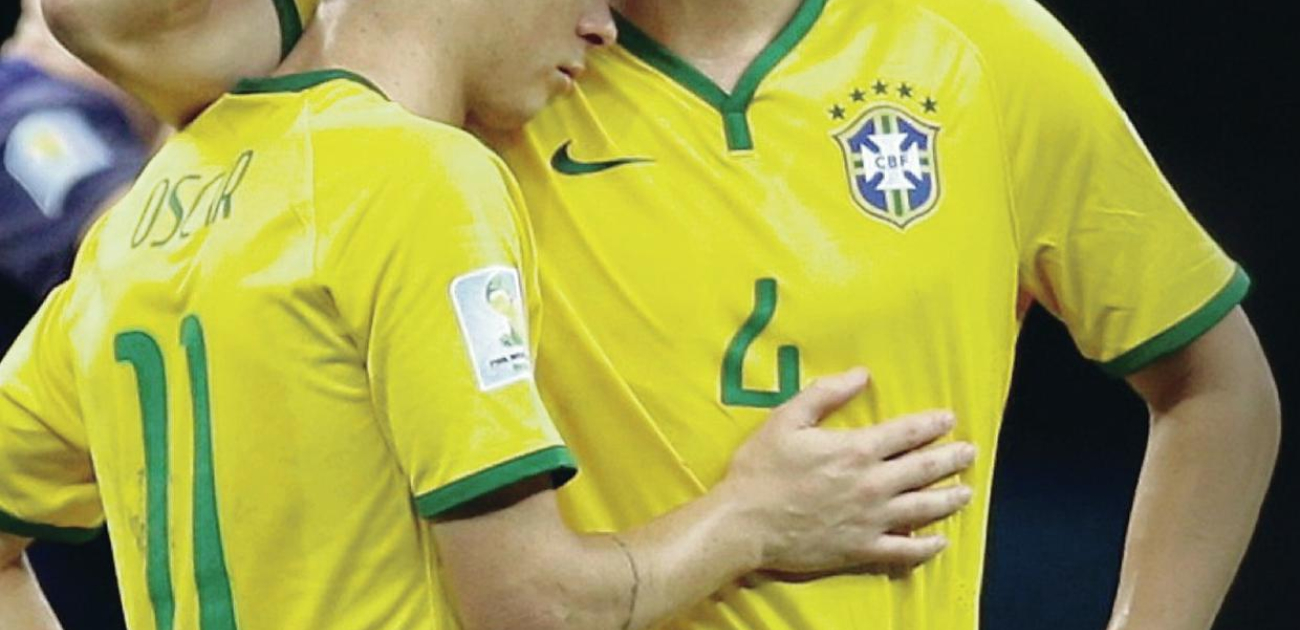The Role of Society and Press in Facing the Disintegration of Brazilian Football
Far be it from me, in a moment of obscurantist raptures like the one we are currently experiencing, producing a text or defending an idea that may seem offensive to press freedom.
The purpose of this text is the opposite. However, if it is intended to provoke a provocation: the structure of football could have already changed if a small part of the time dedicated to the treatment of impediments and controversial pitches in the field was attributed to the debate, by the mainstream media, in a way recurrent and insistent theme of property, governance and control of football activity.
It is true that the written press deals, with some frequency - but not in an organized or planned way -, and for a long time, on such topics.
The problem is not one of censorship, therefore. On the other hand, it seems to be of interest - or of priority; or rather, the lack of them.
There is no denying that when an event or political event, linked to football, emerges, the reaction is immediate. This was the case with the presentation, by the then Federal Deputy Otavio Leite (PSDB / RJ), of PL 5.082 / 16, which created the football limited company (SAF).
This was also the case with the movements of Federal Deputy Pedro Paulo (DEM / RJ), appointed to report and present a substitute for that project, which resulted in PL 5.082 / 16-A, approved by the Chamber of Deputies in November 2019 (and subsequently forwarded to the Federal Senate).
And it was no different with PL 5.516 / 19, which inaugurates the Brazilian Football System, through the classification of SAF, the establishment of rules of governance, control and transparency, the establishment of means of financing football activity and the provision of a transitional tax system, presented in October 2019 by Senator Rodrigo Pacheco (DEM / MG).
However, after immediate repercussions, or some that are a little more resilient, the accompaniment slows down or disappears, to the delight of the very few agents who have ruled Brazilian football for decades - and want it to be weakened, exactly as it is.
So, back to the daily coverage of the internal and external relations of teams and players, and above all of games, cups and championships; fans and society in general are faced with localized and widespread crises, which undermine confidence and systemic credibility.
Even when an exceptional event appears - as happened recently with Palmeiras, flooded with resources interested in the formation of a leading team, or with Flamengo, which terrified the country with revenues of the order of one billion reais and the achievement of almost all titles that it could conquer in one season -, unfortunately, a structural adjustment movement is not created.
And there the obvious is revealed: the ephemerality of such periods of domination results from conjunctural factors, which time takes care of to erode.
The corrosive effect causes the sensation of the loss of opportunity to adopt a new model, which could, in some way, bring local practices closer to the most developed and recognized practices adopted in European countries. It is just a sensation; after all, lamentation is quickly forgotten by the sports news.
Teams in deep crisis, such as Cruzeiro and Botafogo, to name just two out of dozens, with regional or national tradition, also raise, whenever a negative fact overlaps, past mistakes and the need for changes.
In these moments of extreme crisis, the collective interest tends to increase, to soon recover from oblivion.
The Cruzeirense club, to use it as an example, cannot be forgotten, it went from being the main protagonist, a machine to win titles, to the pages of criminal news, and as a symbol of the rot that expanded, even during the glory years - an allusion to the character Dorian Gray, by Oscar Wilde, seems inevitable -, he fell to the second division, where he struggles to maintain himself with some dignity.
In one or two years, he should return to the main series and there, following the recurring pattern, narratives will be built to exalt overcoming and the idols who will have participated in the uplift process. But internally, the rot, extending to virtually all other teams, will persist.
In fact, it has always been this way; and that is what this text, perhaps without much success, was intended to address.
The Brazilian system has rotted and there is, as structured, no remedy to recover it. Its rescue depends on a new structure, which replaces the eroded foundations with decades of mischief, irresponsibility, confusion in property or personalities, and other things.
And would the rescue of football be irrelevant or uninteresting, for society and fans in general?
Shouldn't the existence, in Brazil alone, of approximately 150 million followers (including eventual ones) motivate another relationship with this sports practice?
The attributes that would make it a vector for economic and social development, like, perhaps, no other human activity, would not justify a State policy, to be implemented and continued by governments, in the interests of the people and the Nation?
Wouldn't all these elements, taken together, deserve permanent coverage by the Brazilian media?
If society does not demand respect for what belongs to it, if the fan does not exalt the concern with the need for a healthy and wealth-generating system (sports and economic, which will feed the system itself and contribute to the increase of results and experiences) and if the press is not interested, as it is interested, in the external signs of the industry, there will be no reversal of the process of dismantling or dismantling Brazilian football.
Thus, starting from the premise that the determination for an inclusive model reigns, capable of correcting distortions and reopening a vigorous activity, it is not possible to understand the reasons why, since the appearance of the first signs of approximation and convergence between the draft laws 5,082-A / 16 and 5.516 / 19, the reverberation did not correspond to the importance of the fact (which could be historical).
It may even be a "Brancaleonic" battle, or a utopia, since it was fought against the most retrograde and disguised structures, remaining from the pre-republican period.
But there is no point in complaining, now or in the future, about the ills of football, if we continue to ignore the relevance of the theme - and its solutions. And the tears of the fans, due to the decadence (and eventual sporting insignificance) of their teams, will not help either.
Do you want more information?
 Rodrigo Monteiro de Castro
Rodrigo Monteiro de CastroRodrigo Monteiro de Castro is specialized in corporate and business laws, corporate transactions (M&A), capital markets and contracts.

